A LOCATION AS GOODE AS IT GETS
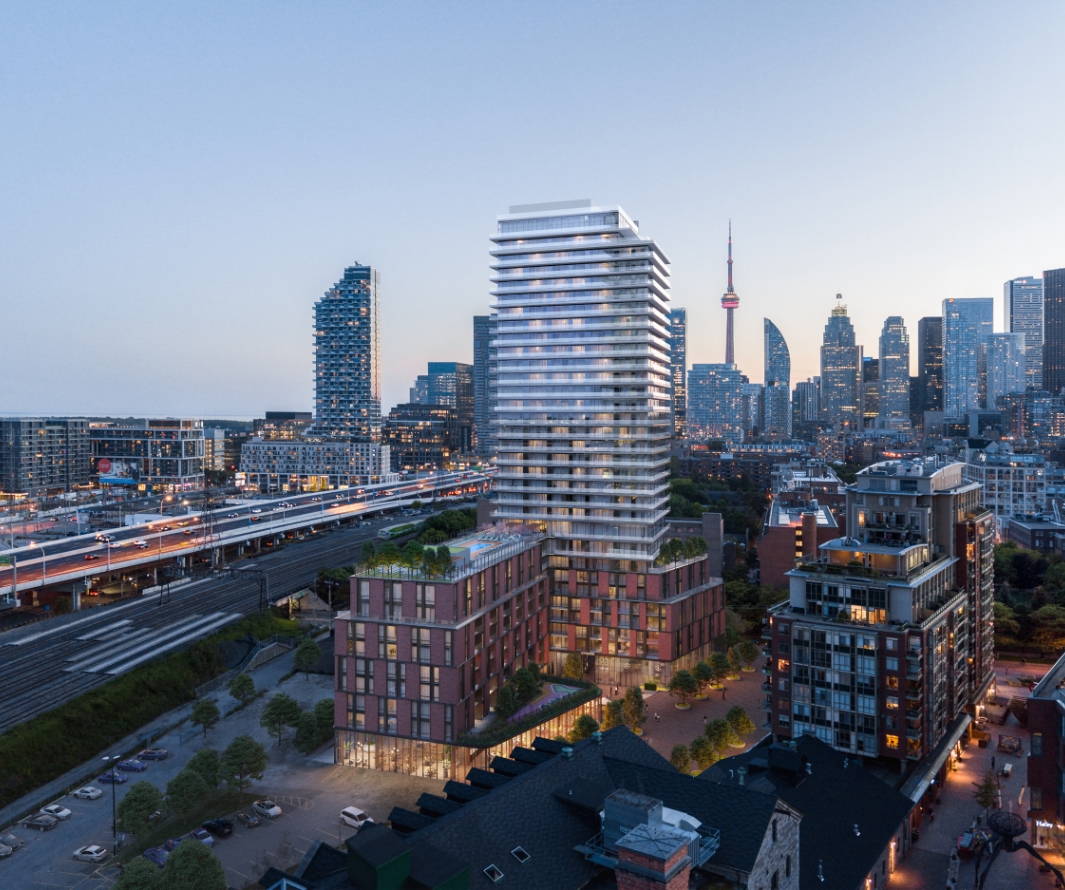
CONVENIENCE IS ALWAYS GOODE
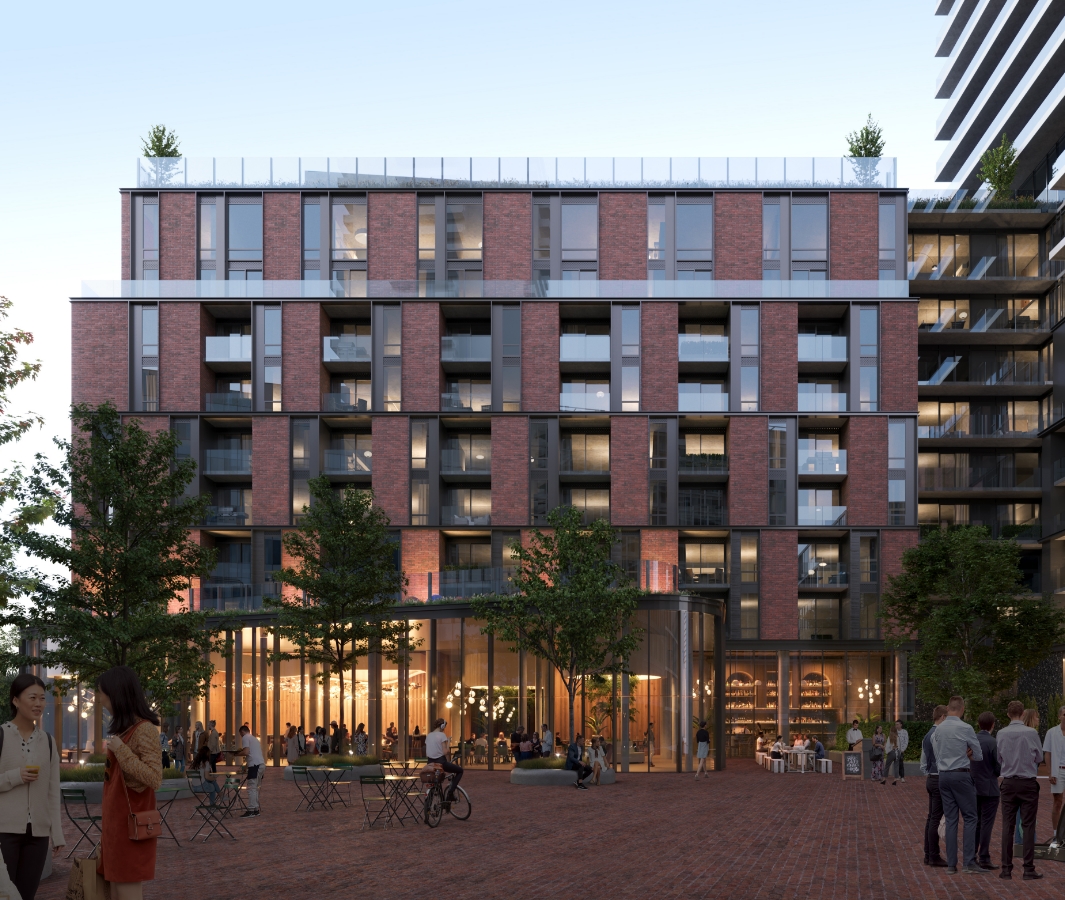
PERFECT SPACES FOR GOODE TIMES
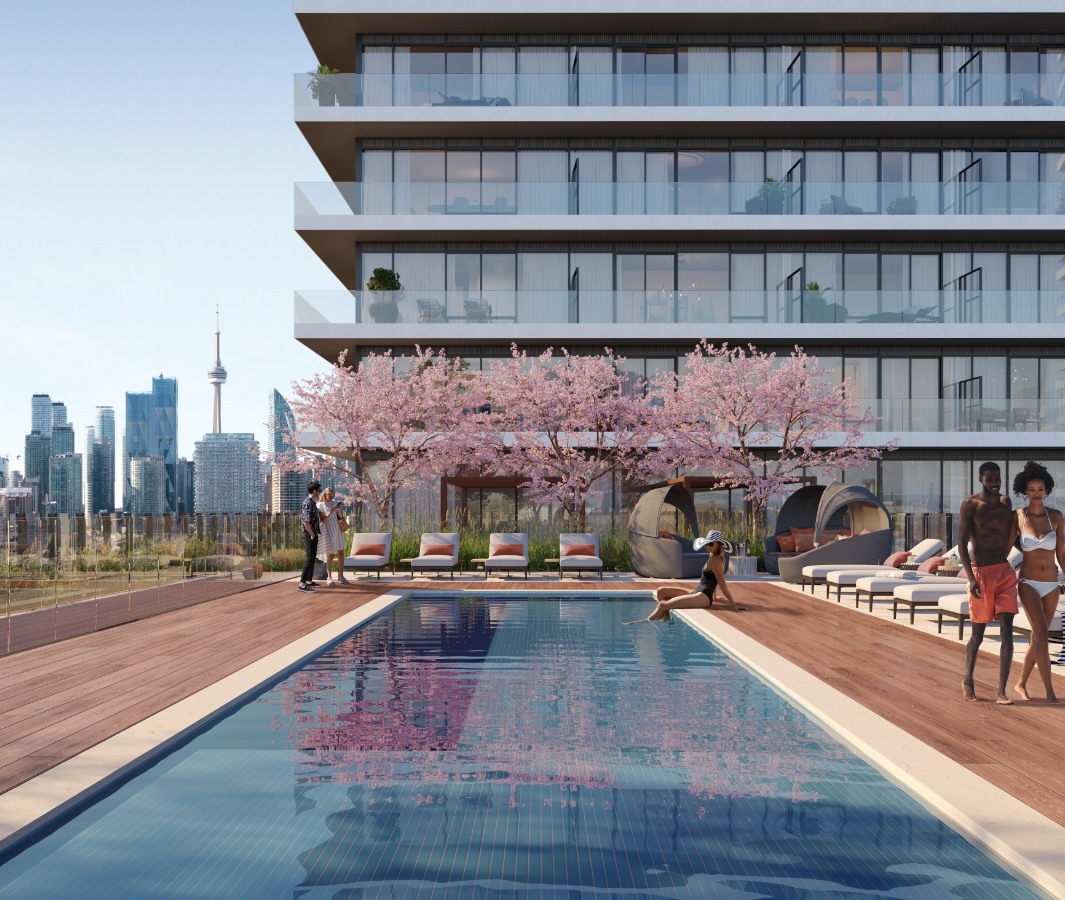
FEELS GOOD TO LOOK THAT GOODE

LIVE THE GOODE LIFE
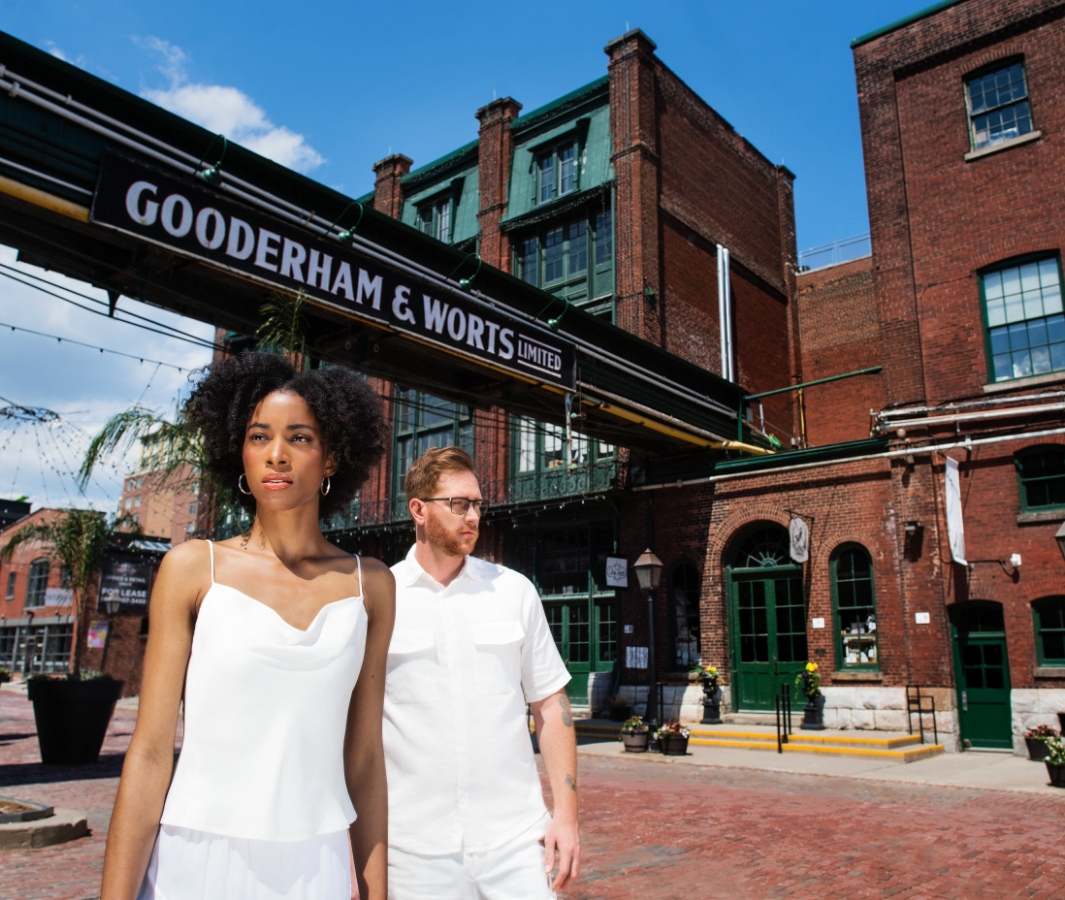
THE FUTURE LOOKS GOODE

THIS IS GETTING GOODE
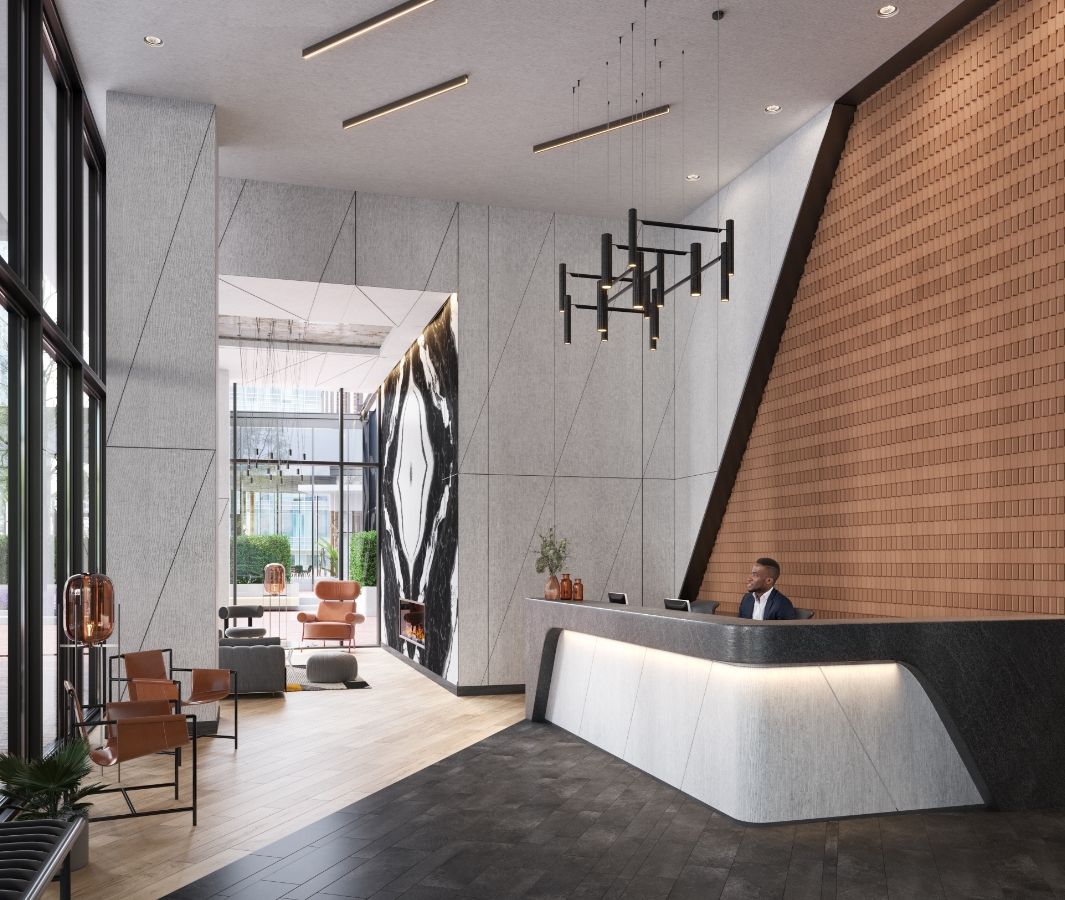
GOODE THINGS ARE COMING

MODERN CONDOS
NOW ON SALE
AT THE DISTILLERY DISTRICT
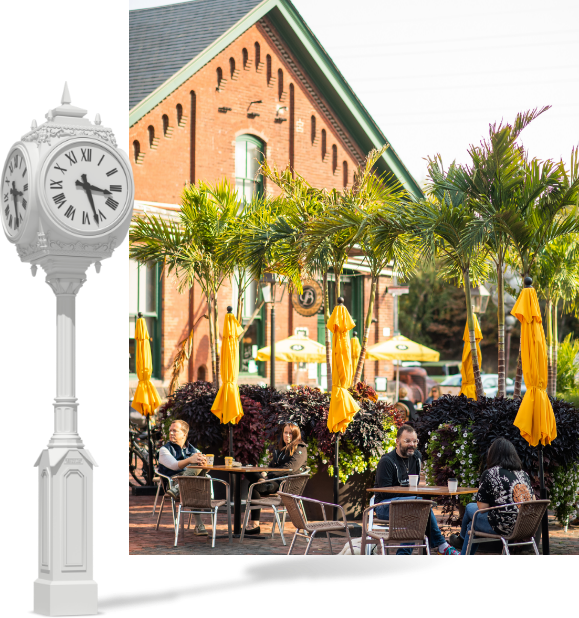
THE FUTURE
LOOKS GOODE
HERITAGE-INSPIRED
FUTURE-FORWARD
URBAN LIVING
FROM THE
$X00S
It all starts here - a new extension of the Distillery District, modern urban living, and one of the last opportunities to own a piece of a historic neighbourhood. It’s a blank canvas. It’s upward movement. It’s a chance to write the story of tomorrow, today.
32 storeys. Views across the city and the lake. Crisp architecture and with a podium that blends perfectly into its surroundings. Heritage-inspired, future-forward. On the cusp of something extraordinary. Your future begins at The Goode.
Brought to you by the Graywood Developments, the industry innovators who brought you The Ritz Carlton Hotel and Residences, JAC Condos, Wonder Condos and more.


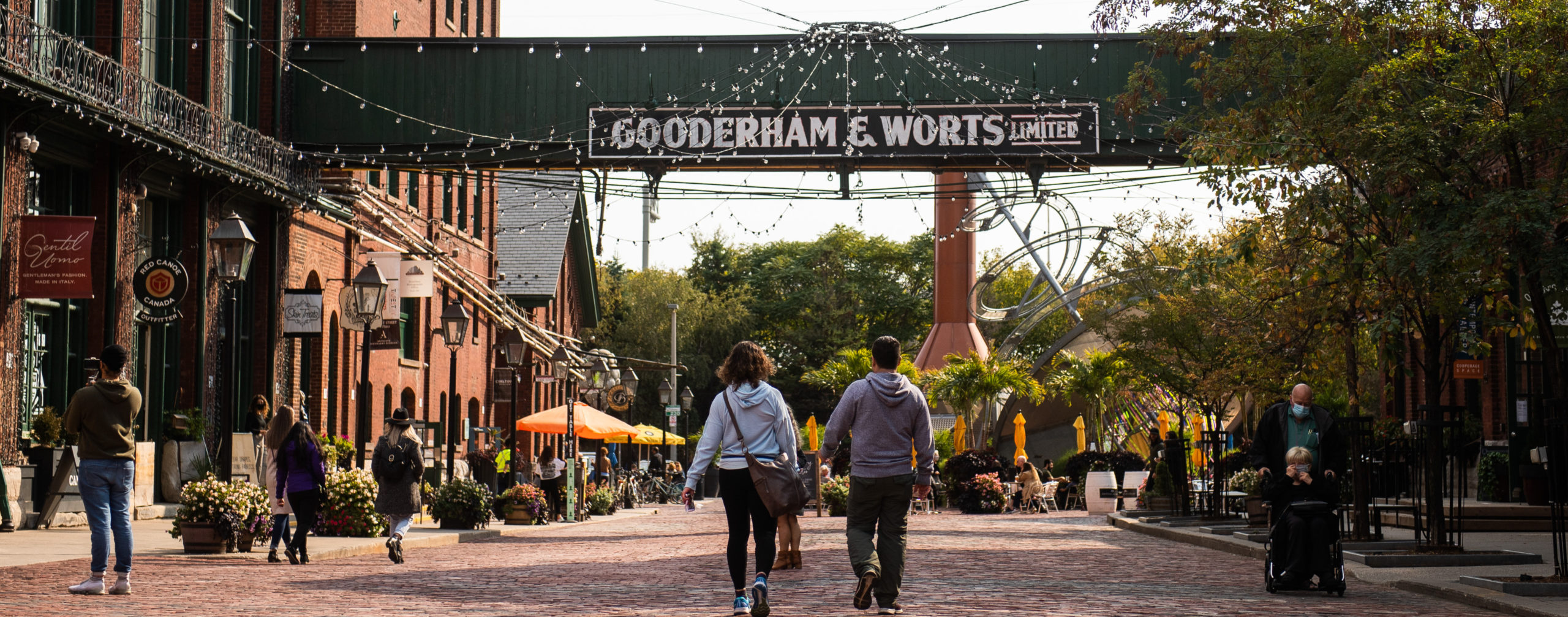
Time and time again, the Distillery District has reinvented itself. The neighbourhood is the embodiment of motion and evolution, constantly adapting and changing as the city grows. From its 18th century origins underwater, to new transit, islands, and communities rising up over the next 20 years, take a goode look at what’s in store.
INTRO
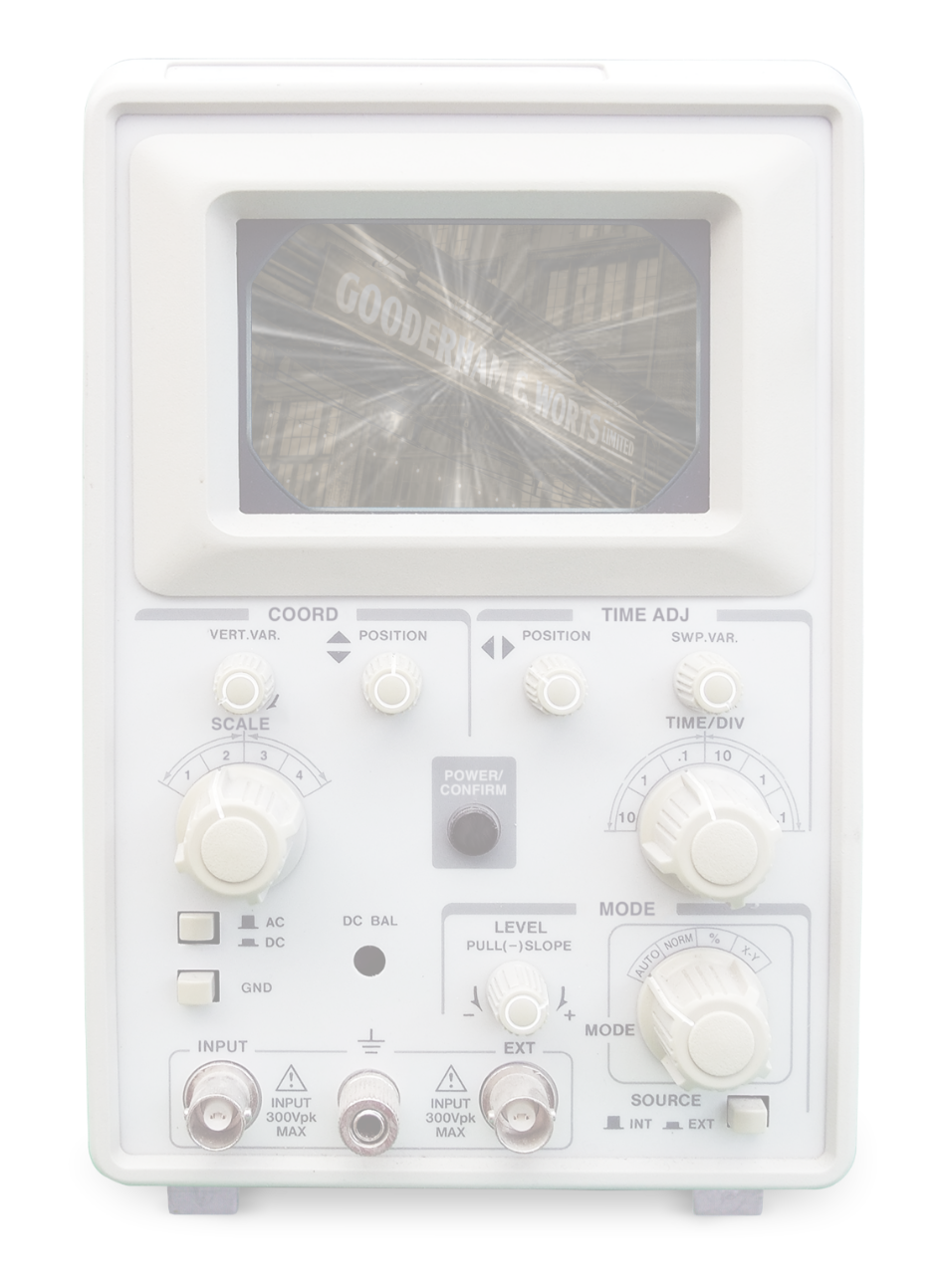
PASTPRESENTFUTURE
Early maps show that the site for The Goode was under water, about 40 metres south of the Lake Ontario shoreline. With the growth of industry, the property is developed as manmade land.
1800s
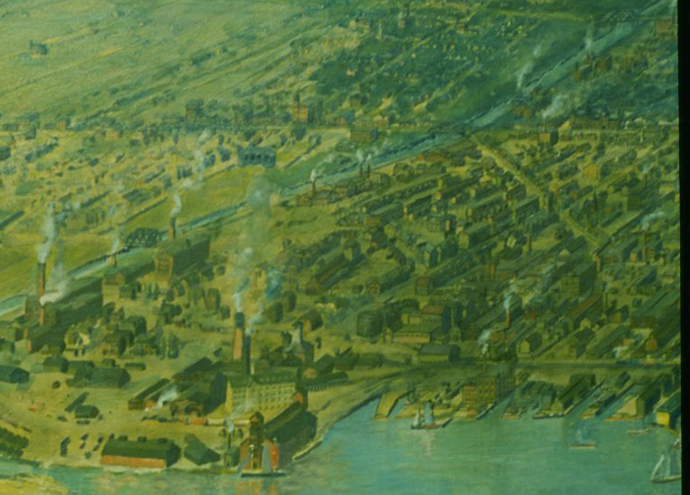
PASTPRESENTFUTURE
The First Parliament buildings of Upper Canada are built at the intersection of modern-day Front and Parliament Streets in the former Town of York, now Toronto, marking the beginnings of a united Canada.
1795
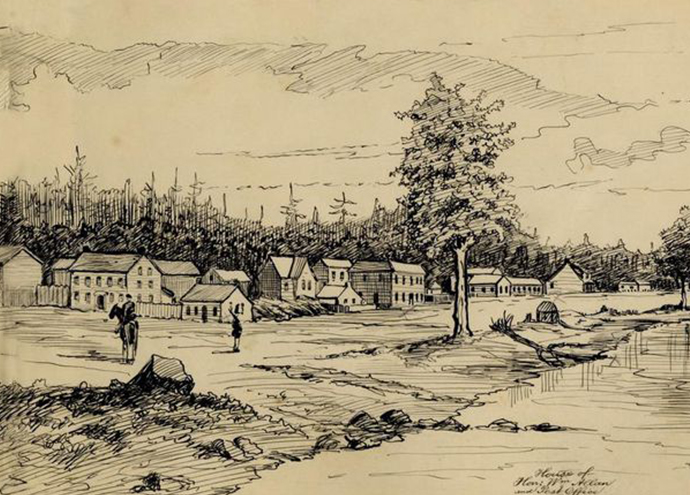
PASTPRESENTFUTURE
The population of York (today, known as Toronto) is estimated at 212 persons. By 1807 this number doubles to 414. In 1834, when Toronto incorporates as a city, the population has reached 9,254, and by 1845 this number has doubled again to 19,706.
1797
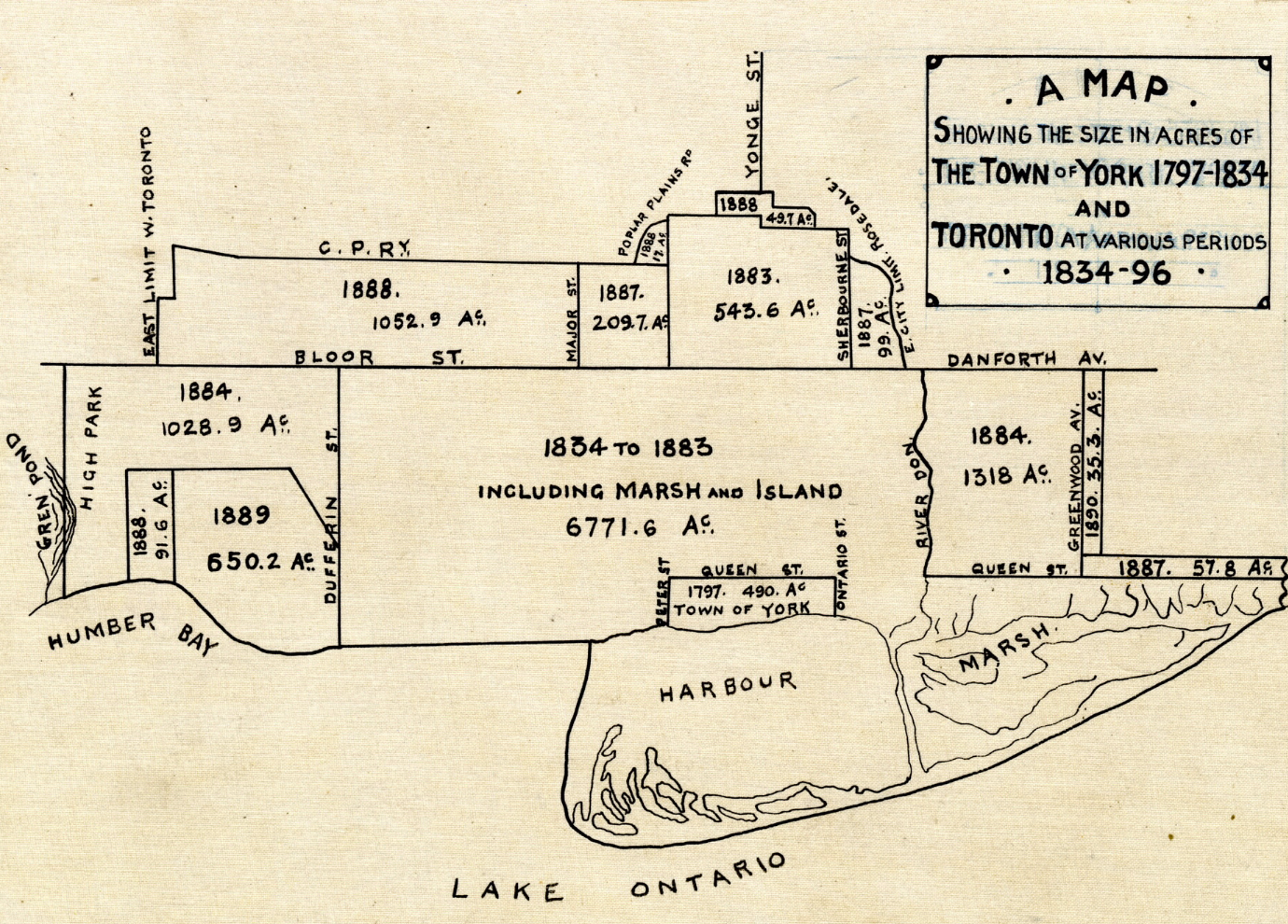
PASTPRESENTFUTURE
The First Parliament buildings of Upper Canada are burned down by American soldiers during an invasion of York.
1813
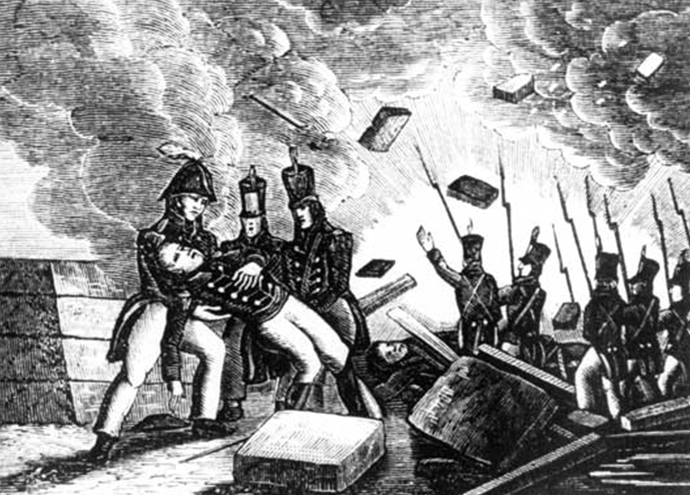
PASTPRESENTFUTURE
The Gooderham and Worts Distillery is founded by British immigrant, James Worts and his brother-in-law, William Gooderham.
1832
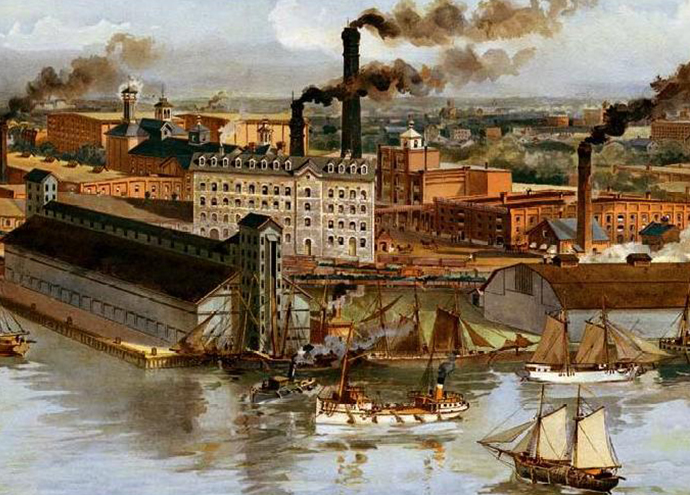
PASTPRESENTFUTURE
Gooderham & Worts is distilling alcohol in a building on the west side of Trinity Street.
1837
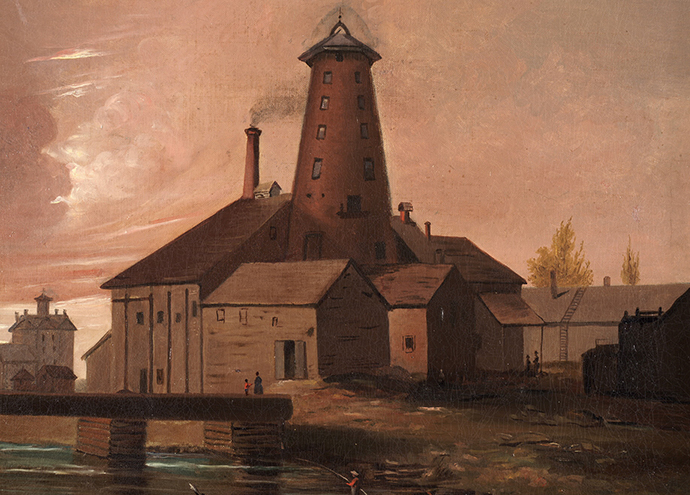
PASTPRESENTFUTURE
The G&W Trinity Street distillery burns to the ground. The company rebuilds.
1842
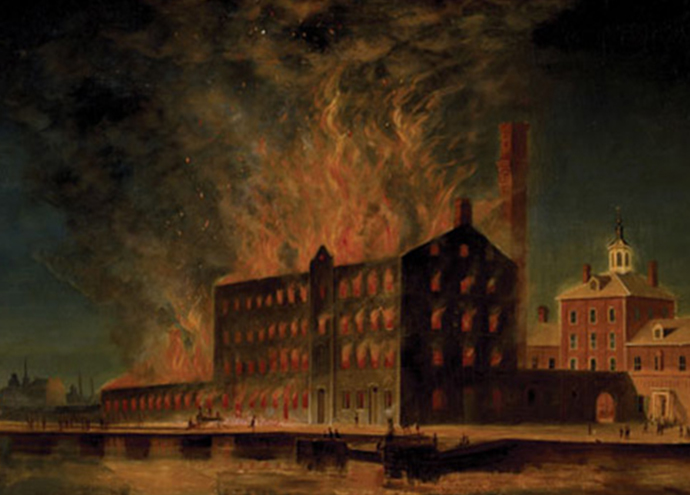
PASTPRESENTFUTURE
The three major railway companies, the Ontario, Simcoe and Huron Railway (later renamed the Northern Railway); the Great Western Railway; and the Grand Trunk Railway, all descend on Toronto, radically altering the waterfront with the construction of tracks, terminals, freight stations, utilities, and wharves.
1850s
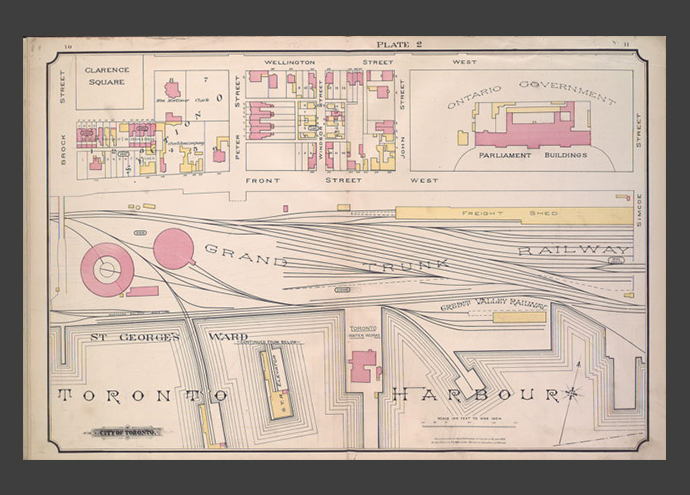
PASTPRESENTFUTURE
Gooderham and Worts builds the largest distillery in Canada (and one of the largest in North America). In its first year, the new distillery produces 25% of Canada’s entire production. It will eventually produce half of Canada’s entire spirits production annually and become the largest corporate taxpayer in the country. More than 160 years later, the site becomes one of Canada’s premier destinations for art, culture, entertainment, dining, and retail.
1859
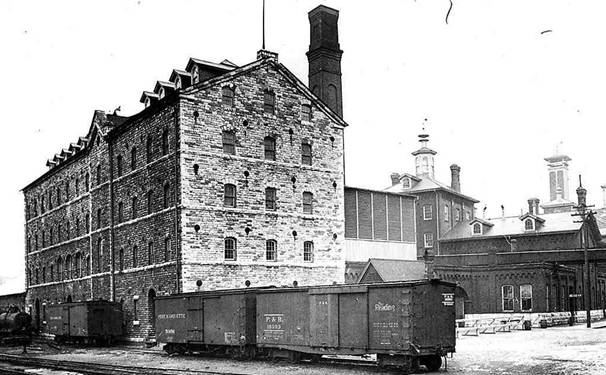
PASTPRESENTFUTURE
World War One begins.
1914
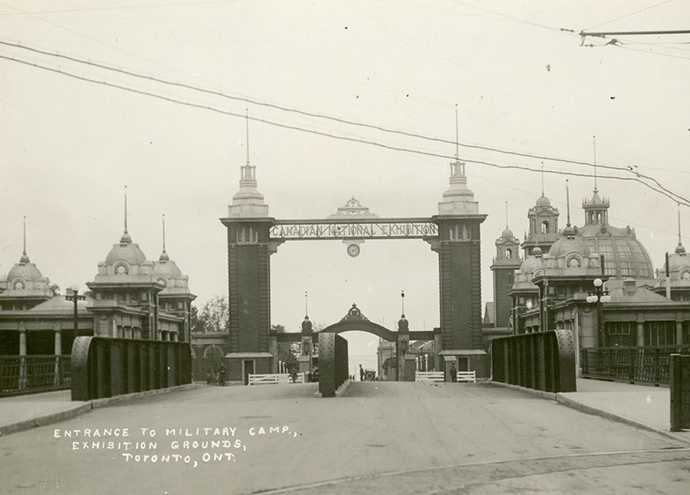
PASTPRESENTFUTURE
G&W offers the distillery to the British government, free of charge, for the duration of the war, to produce acetone and ketone, essential ingredients in smokeless gunpowder.
1916
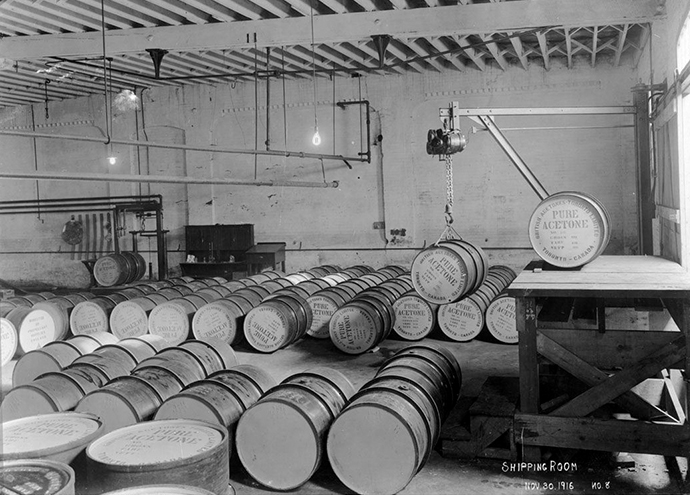
PASTPRESENTFUTURE
The Ontario Temperance Act bans the sale of alcohol in the province and forbids the possession of liquor outside a private dwelling, but does not prohibit manufacturing liquor.
1916
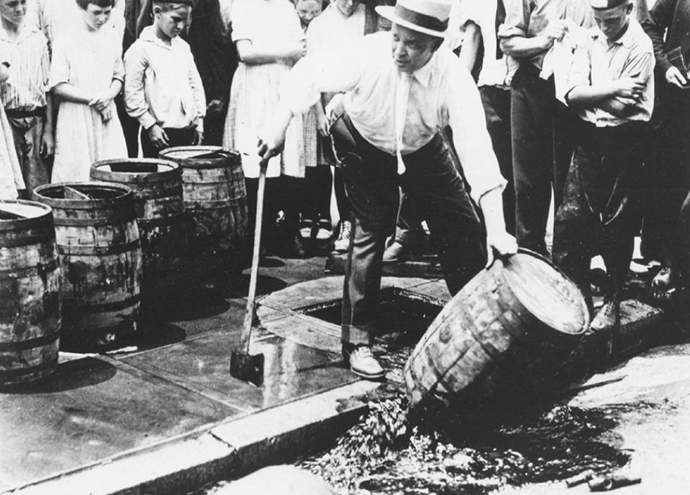
PASTPRESENTFUTURE
Gooderham and Worts merges with Hiram Walker & Sons Ltd. and the bulk of the operations move to Windsor, Ontario.
1927
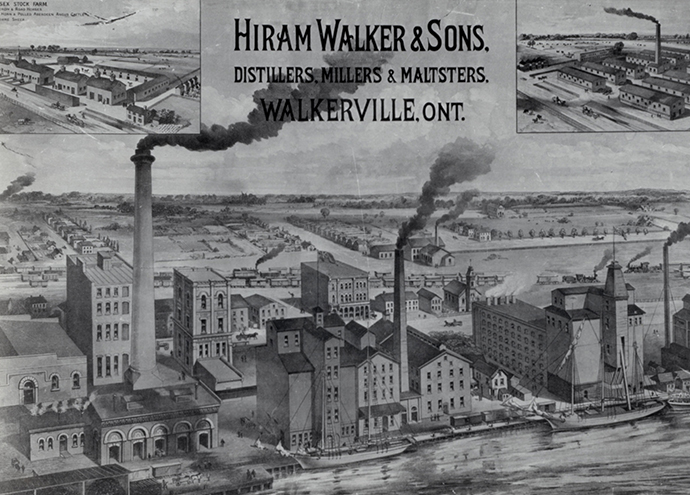
PASTPRESENTFUTURE
Prohibition ends in Ontario and Ontario government liquor stores open.
1927
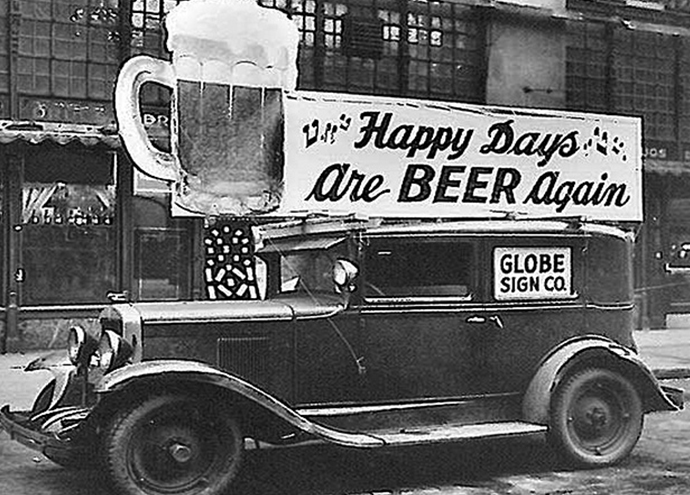
PASTPRESENTFUTURE
Following testimony from Italian-born bootlegger, Rocco Perri, also known as "Canada's Al Capone,” that he bought whisky from G&W during prohibition, Gooderham and Worts is convicted of tax evasion and ordered to pay a fine of $439,744.
1928
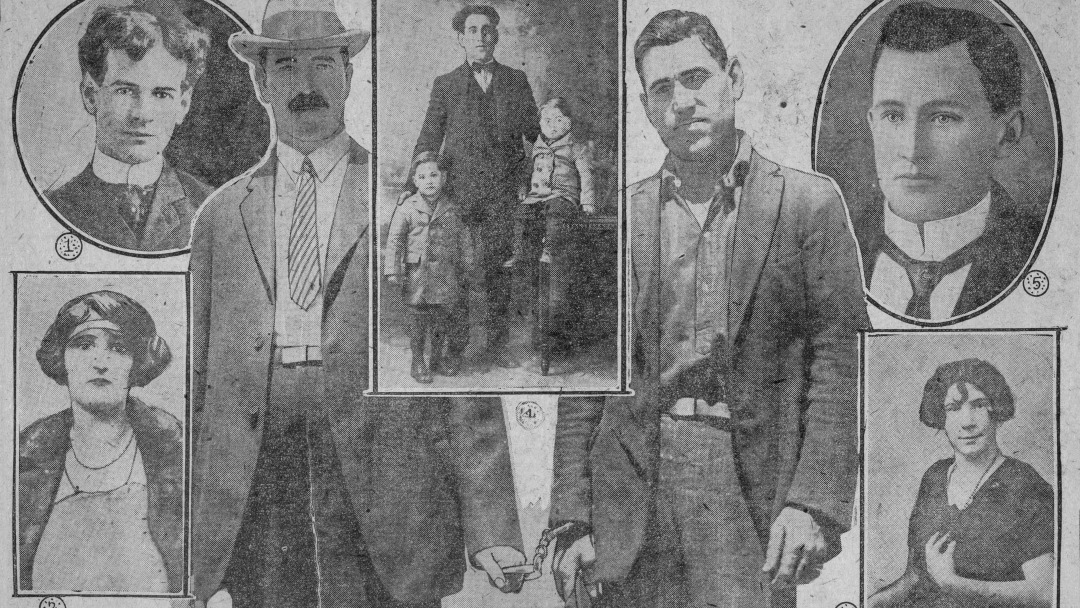
PASTPRESENTFUTURE
The last grain alcohol (whisky) is produced at the Gooderham & Worts plant. The distillery will continue to produce rum and other industrial alcohol products.
1957
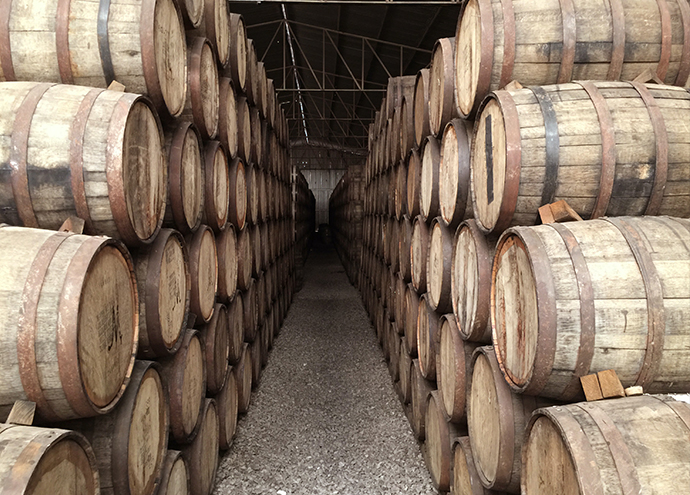
PASTPRESENTFUTURE
The Distillery District is designated a National Historic Site of Canada, containing the largest and best-preserved collection of Victorian-era industrial architecture in North America.
1988
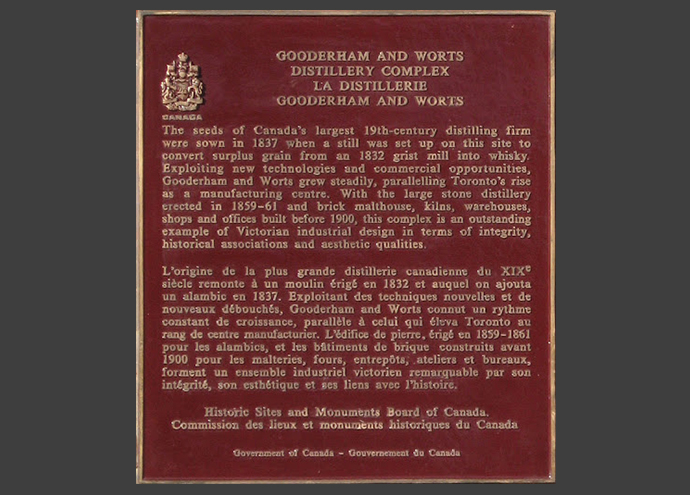
PASTPRESENTFUTURE
The Hiram Walker-Gooderham & Worts Ltd. distillery officially ceases operations.
1990
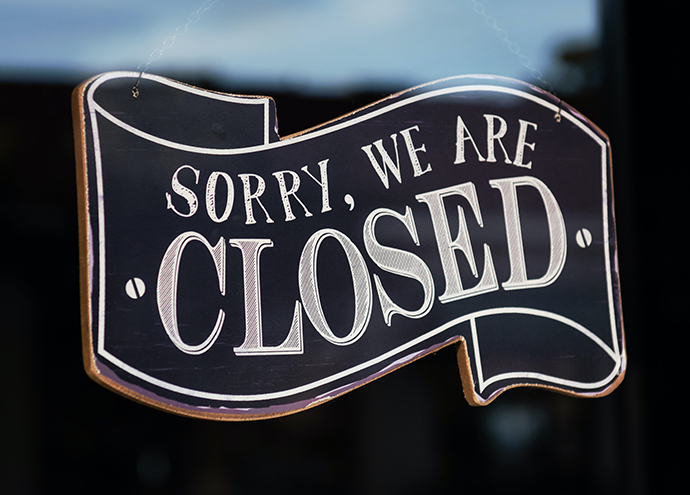
PASTPRESENTFUTURE
The site is purchased by Cityscape, which transforms the district into a pedestrian-oriented neighbourhood to promote arts, culture, and entertainment, with converted space for artist and galleries.
2001
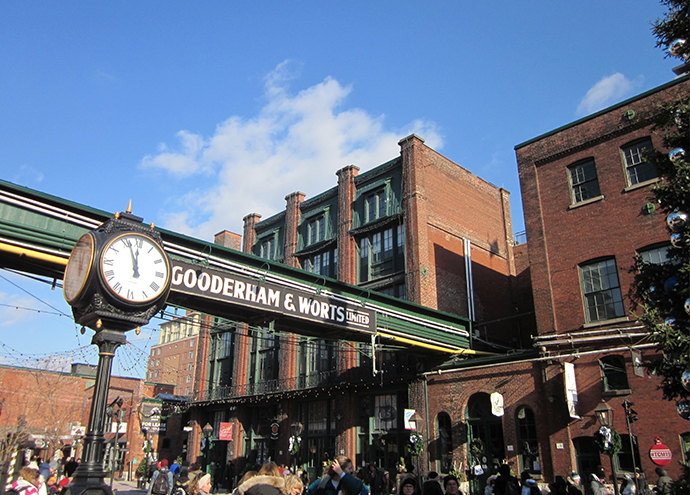
PASTPRESENTFUTURE
Balzac's Coffee Roasters opens in the Distillery District. The Grand Parisian style café becomes a neighbourhood institution for lattes and is dubbed, “the most spectacular coffee shop in Canada” by the Toronto Star.
2002
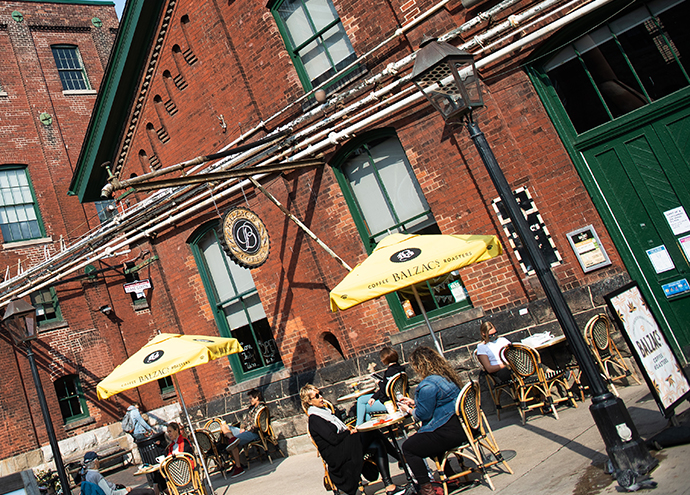
PASTPRESENTFUTURE
Chicago is filmed in various locations around the city, including The Distillery District. The district is used as a location for over 800 film and TV productions over the span of a decade.
2002
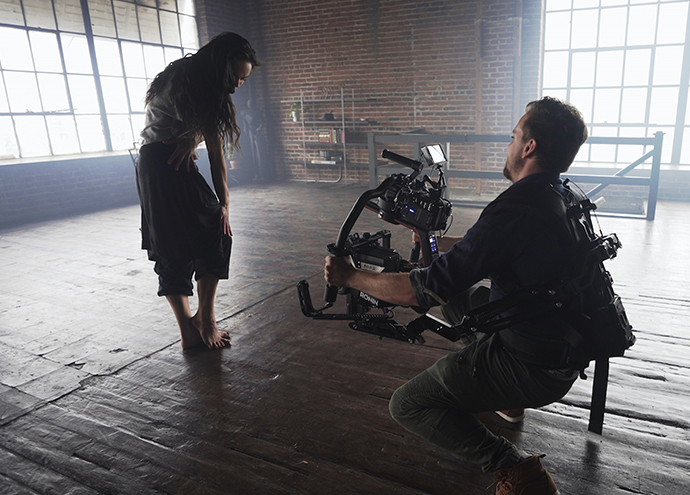
PASTPRESENTFUTURE
The historic Distillery District officially opens to the public. It is Canada’s premier arts, culture and entertainment destination brimming with creativity and creatives.
2003
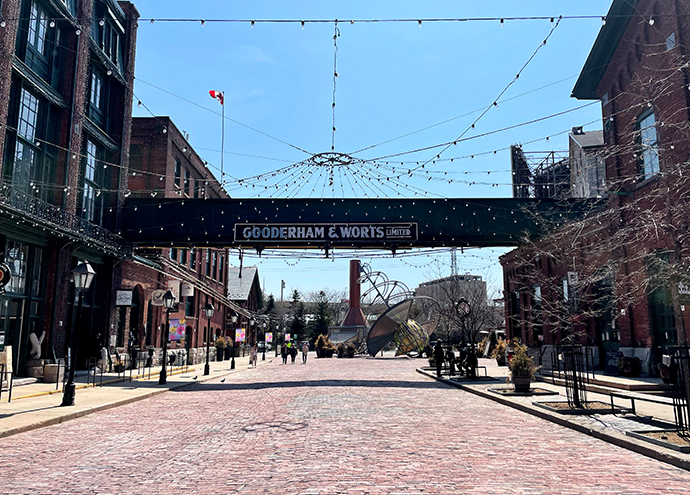
PASTPRESENTFUTURE
Young Centre for the Performing Arts opens, providing a home for the Soulpepper Theatre Company and the George Brown Theatre School.
2006
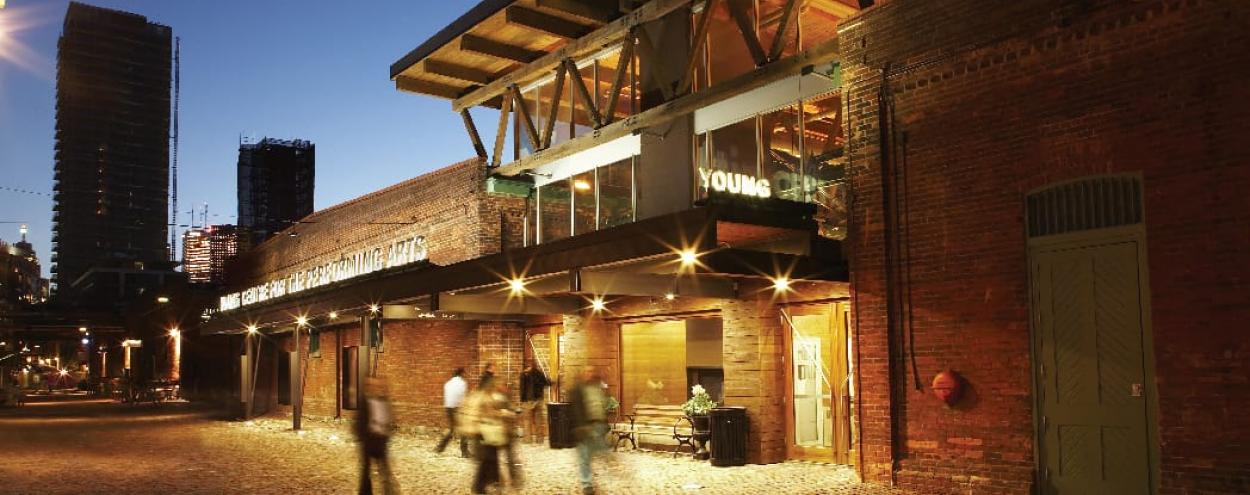
PASTPRESENTFUTURE
Underpass Park opens under the overpasses of Adelaide, Eastern Avenue, and Richmond Street. The urban park with a modern twist includes a playground, basketball courts, and skate park, along with tons of Instagram-worthy street art.
2012
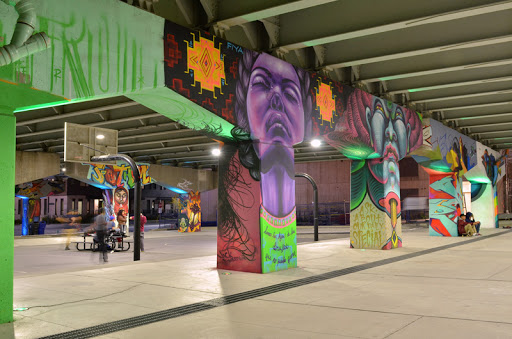
PASTPRESENTFUTURE
El Catrin begins serving its signature authentic modern Mexican cuisine to local residents and word quickly spreads. Visitors come from all over the city to feast on carne asada, ceviche, mouth-watering tacos, and the largest tequila and mezcal collection in the country.
2013
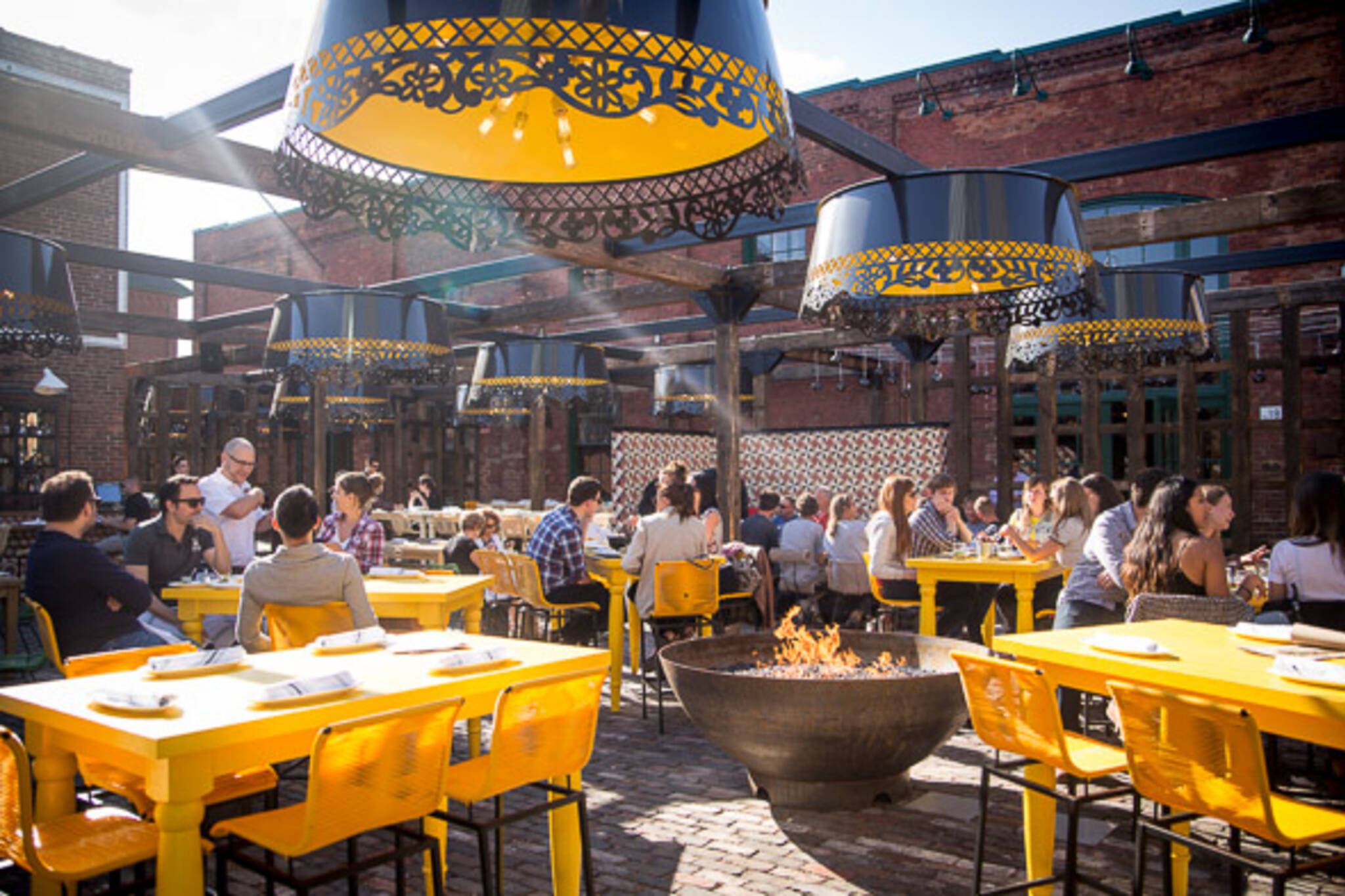
PASTPRESENTFUTURE
The nine-metre-long LOVE lock installation is unveiled and becomes an instant Instagram sensation. The Paris-inspired piece is part of a feel-good series by Lifecapture Collective, that includes the big peace sculpture and the giant red heart, also both in the Distillery.
2014
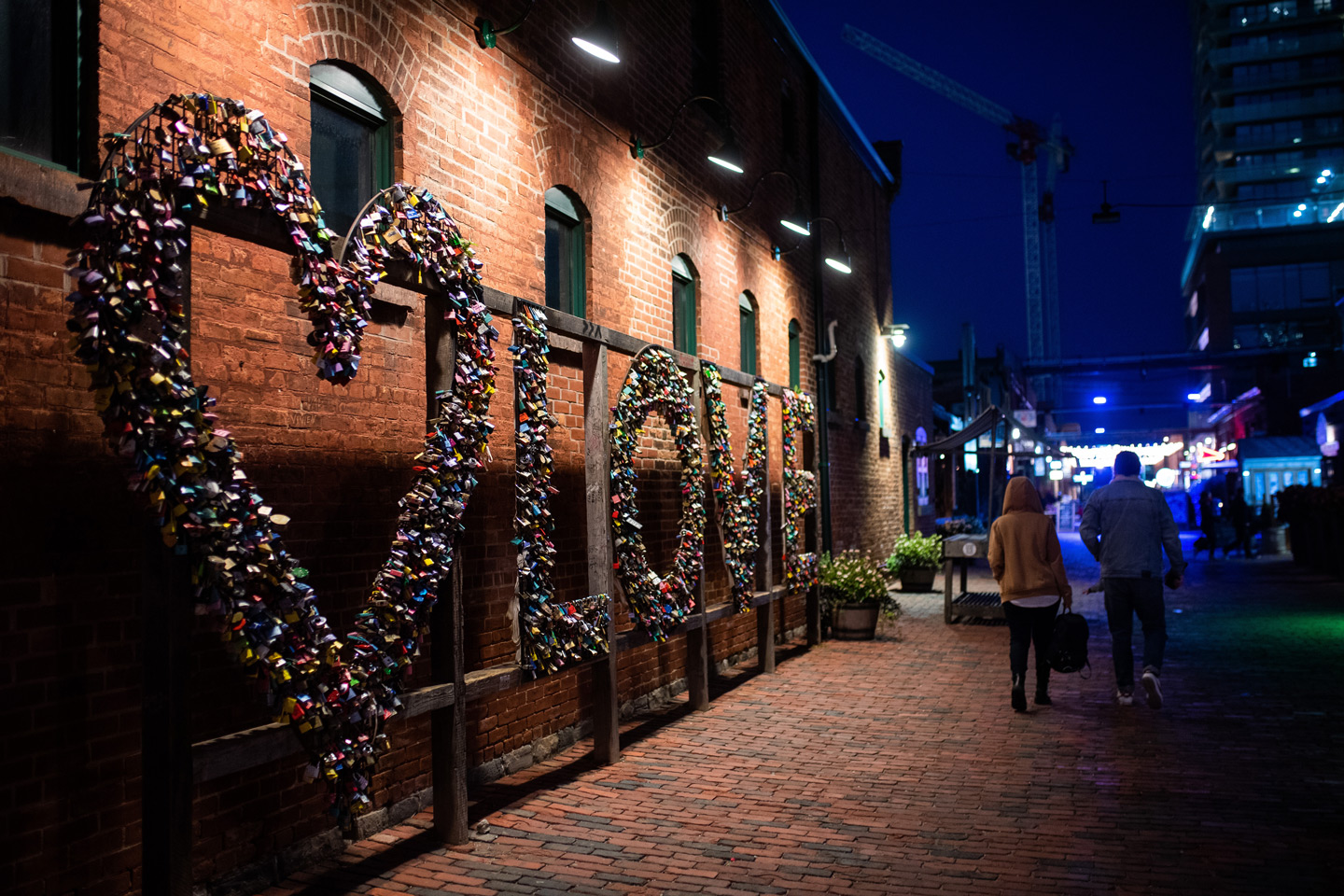
PASTPRESENTFUTURE
Toronto hosts the Pan Am/Parapan Am Games with Athletes’ Village next door in the Canary District.
2015
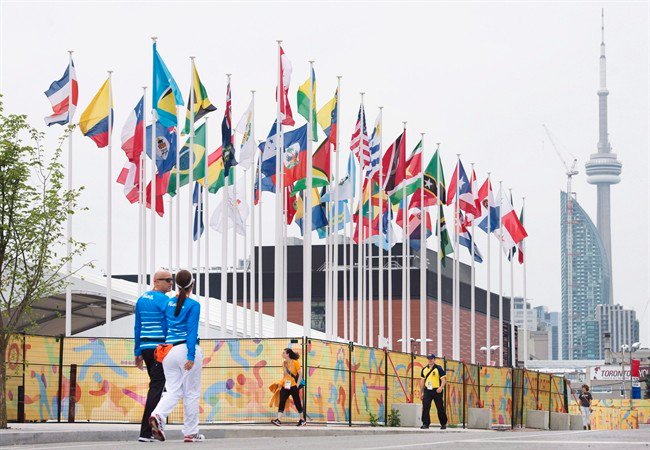
PASTPRESENTFUTURE
Front Street Promenade opens to the public. The 1000-foot pedestrian-centric boulevard is lined with gourmet restaurants, cafes, bakeries, and retailers like Dark Horse, Think Fitness, Tabule, and more.
2016
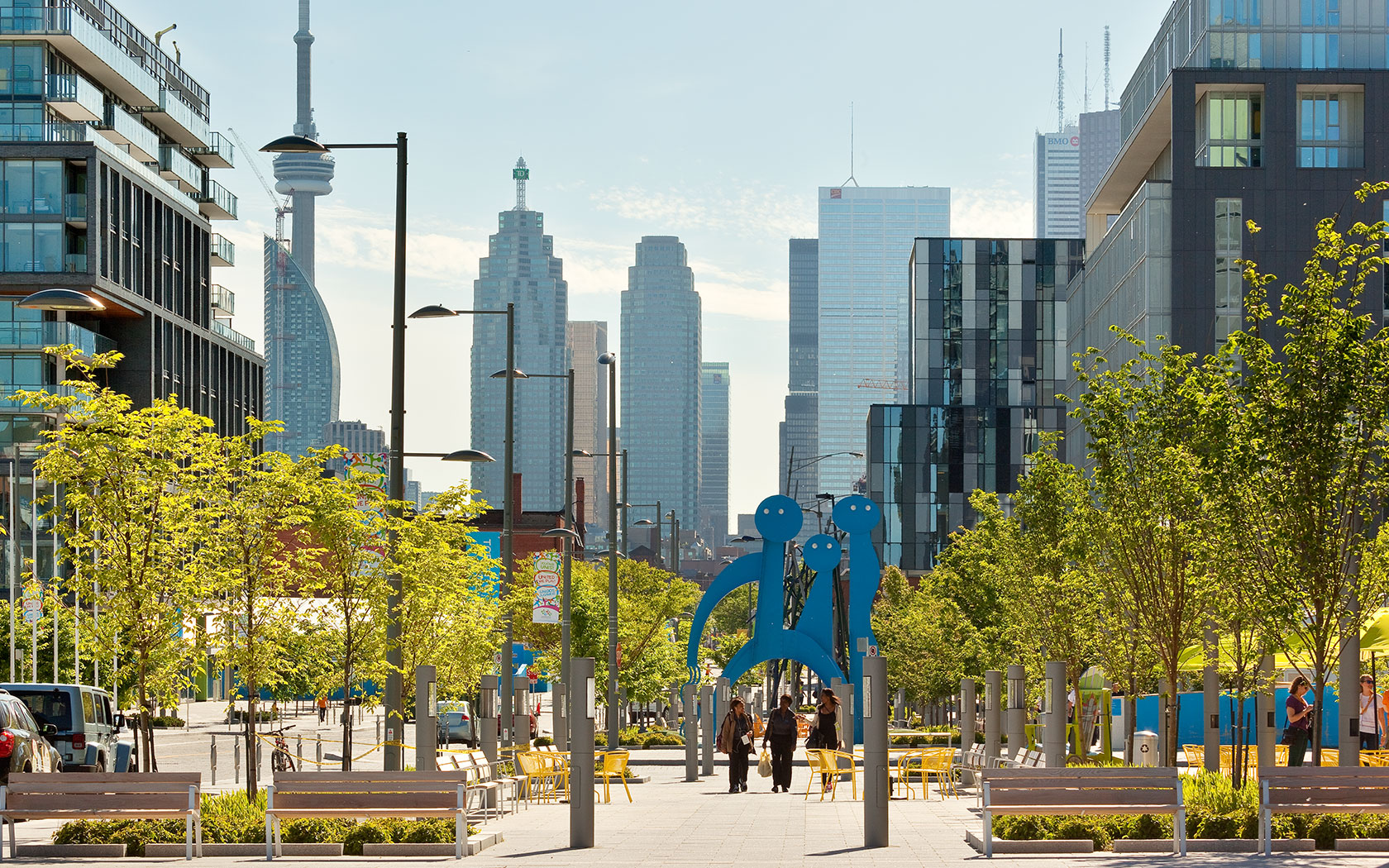
PASTPRESENTFUTURE
The Cooper Koo Family YMCA opens, a block from the Distillery. Toronto’s flagship 82,000 square foot YMCA features a state-of-the-art fitness space, a running track, 10,000 square feet of green roof space, and two swimming pools.
2016
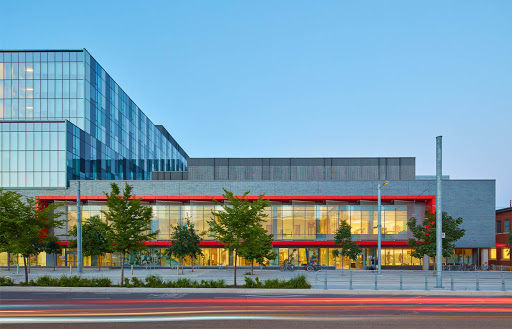
PASTPRESENTFUTURE
$1.25 billion in municipal, provincial and federal funding is awarded to the Port Lands Flood Protection Project. Later this year, construction begins on “one of the largest waterfront revitalization projects in the world.”
2017
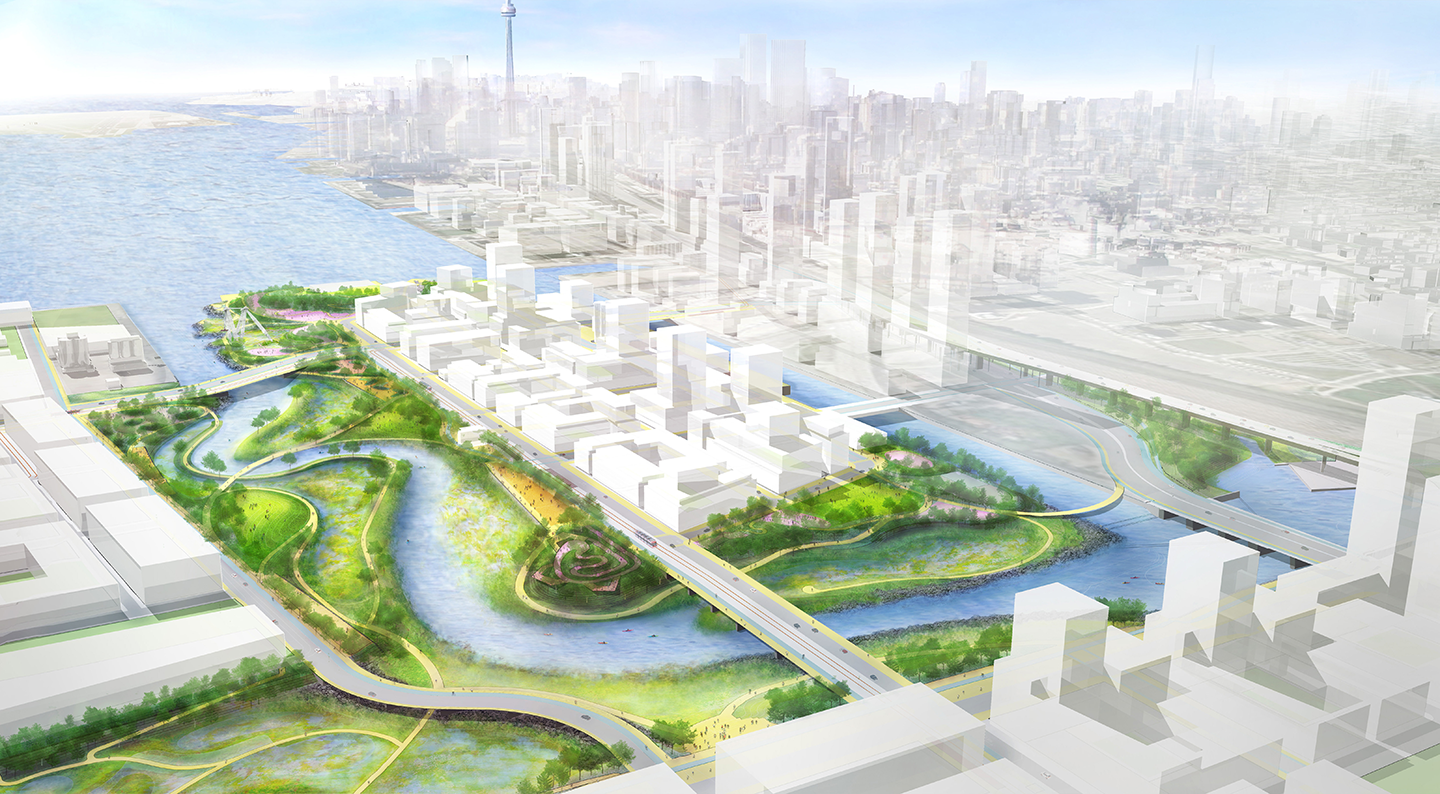
PASTPRESENTFUTURE
Google’s parent company announces plans to build “Quayside,” a futuristic mini-city along a 12-acre section of Toronto's eastern waterfront.
2017
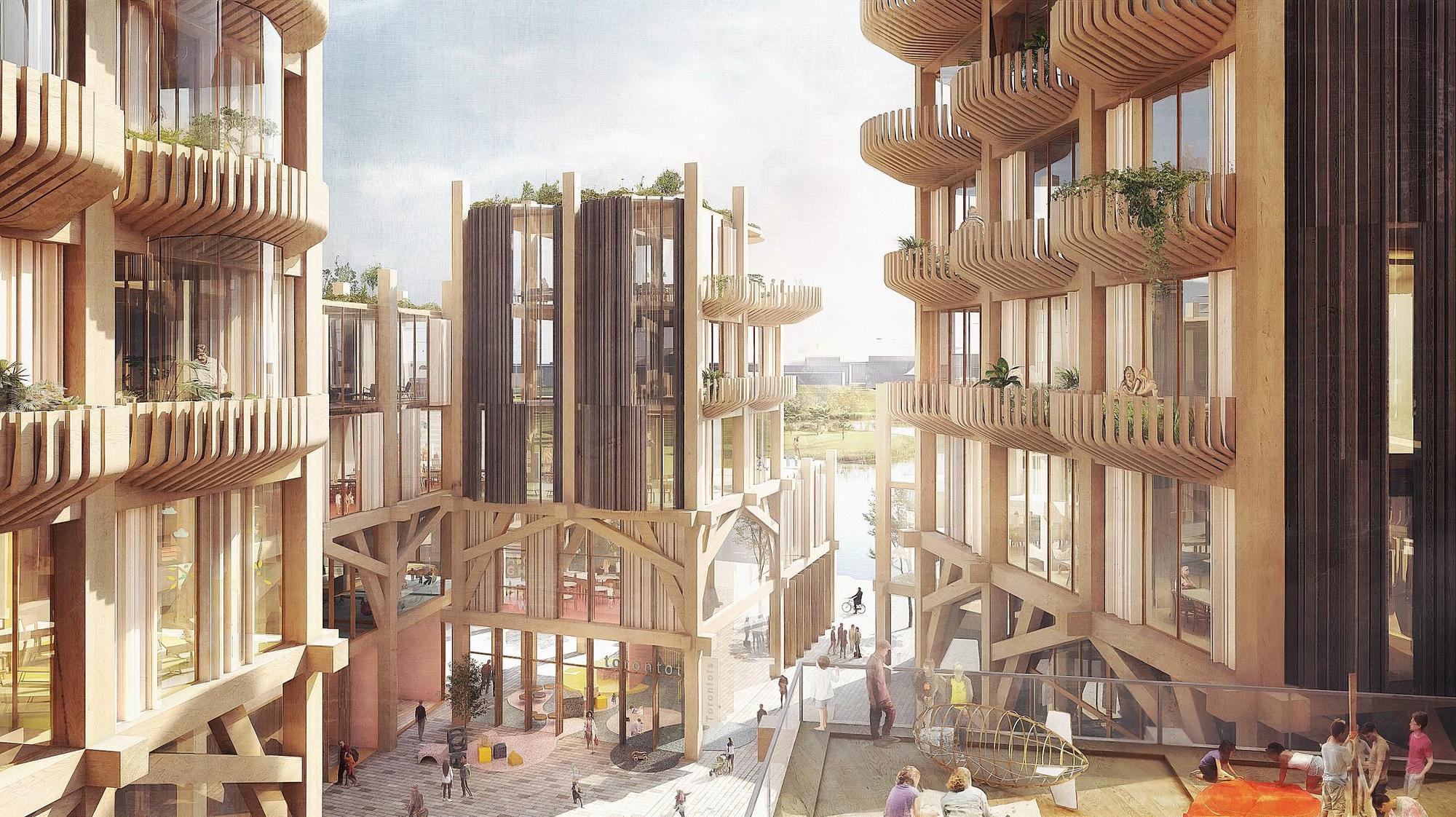
PASTPRESENTFUTURE
National Geographic names The Distillery District a "top pick" for travellers visiting Canada.
2018

PASTPRESENTFUTURE
The Distillery District makes the cut as one of The Guardian’s “10 Cool Shopping Districts Around The World,” - the only Canadian location to make the list.
2018
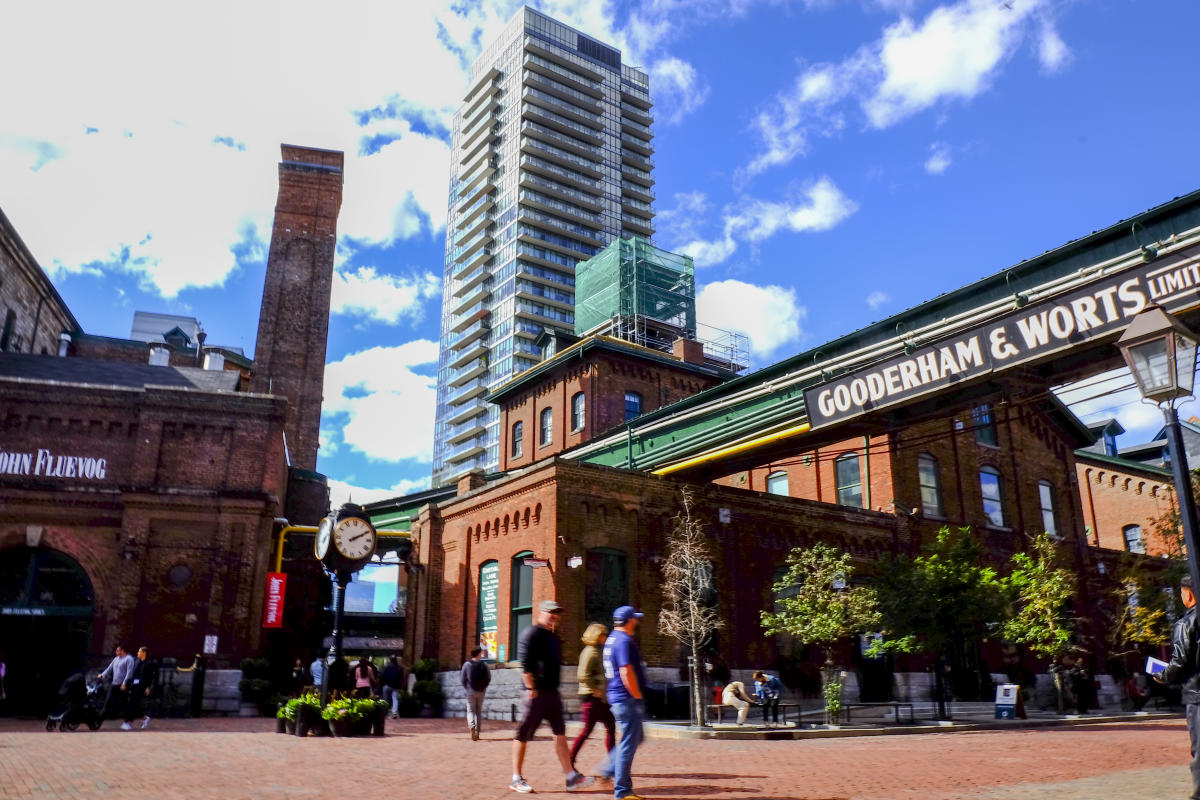
PASTPRESENTFUTURE
Plans for Quayside, Sidewalk Labs’ high tech "city within a city," exponentially grow from a 12-acre plot of land, to a 190-acre "Innovative Development and Economic Acceleration (IDEA) district.”
2019
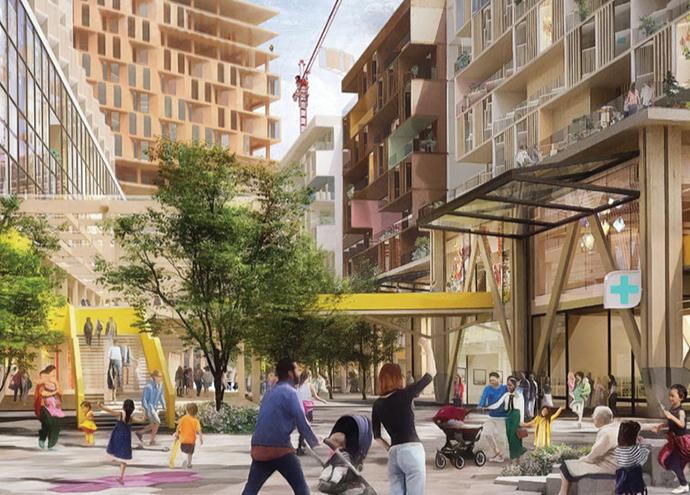
PASTPRESENTFUTURE
Citing the impact of coronavirus and “unprecedented economic uncertainty,” Sidewalk Labs announces that it will no longer pursue the Quayside development.
2020
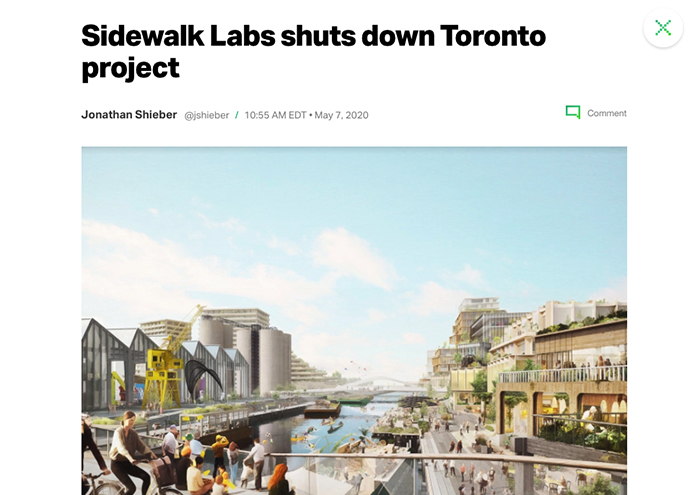
PASTPRESENTFUTURE
With the continued development of the Distillery District and neighbouring Canary District, the area’s population increases more than 250% from 3,475 to 9,283.
2020
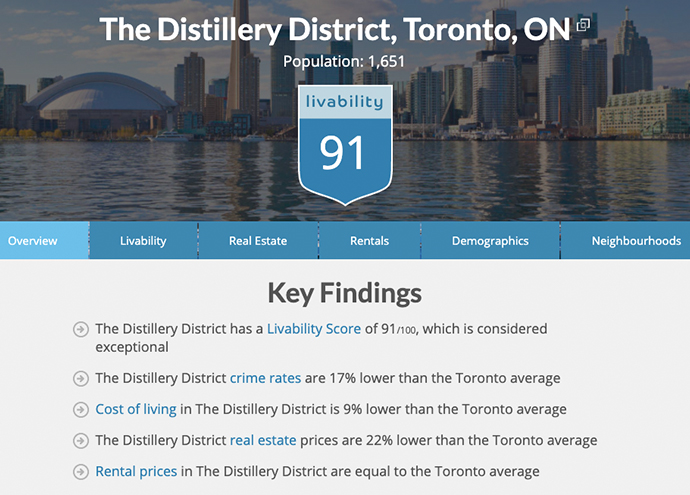
PASTPRESENTFUTURE
Waterfront Toronto is now four years into the seven-year $1.25 billion Port Lands Redevelopment project, re-naturalizing the mouth of the Don River and creating a new river valley through the city’s Port Lands.
2021
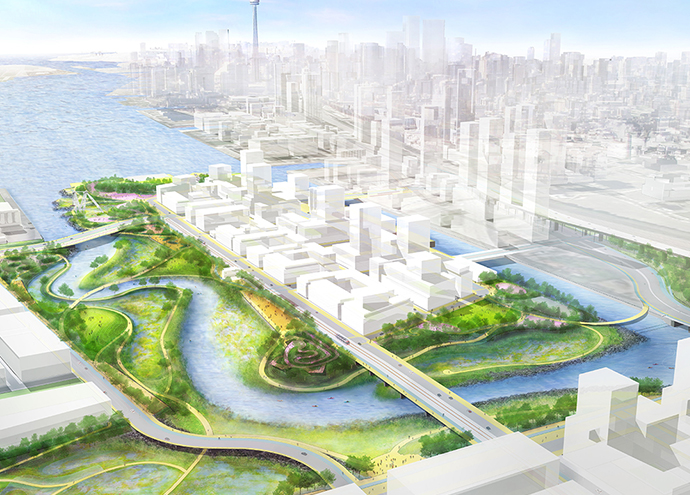
PASTPRESENTFUTURE
Waterfront Toronto announces plans for Parliament Slip, a "world-class destination for swimming, kayaking, boating, entertainment and dining never seen in Canada before." The Slip will surround the Parliament WaveDeck, a 32,300-square-foot wavedeck running from the existing slip at the foot of Parliament Street along Queens Quay East.
2021
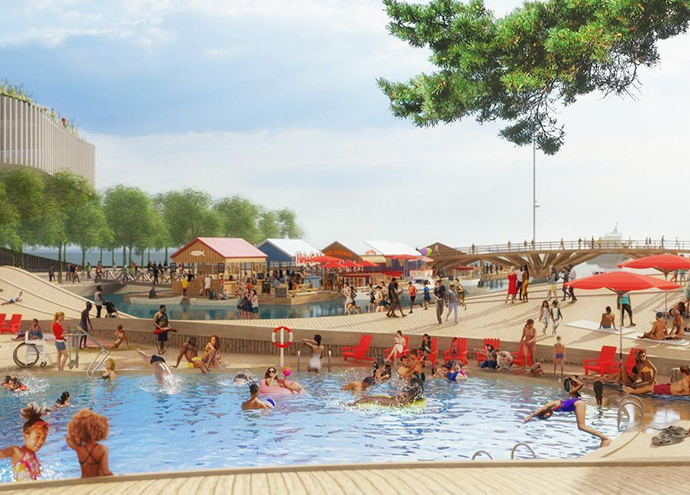
PASTPRESENTFUTURE
Waterfront Toronto launches a competition to find a new partner for Quayside. The group seeks “leaders in the development field” who can help position Toronto as one of the great waterfronts in the world. The site includes 3.2 hectares of developable land across five development blocks and is one of the last undeveloped expanses of land in downtown Toronto.
2021
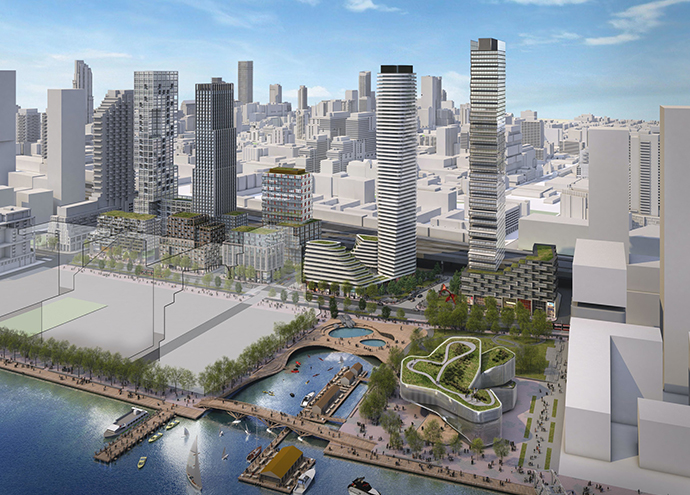
PASTPRESENTFUTURE
Some time this decade 3C will open the doors to a 13.5-acre site home to 2.4 million square feet of brand-new office, retail, and residential space. The master plan was created by Norman Foster + Partners, the name behind London's famed "Gherkin.”
2020s
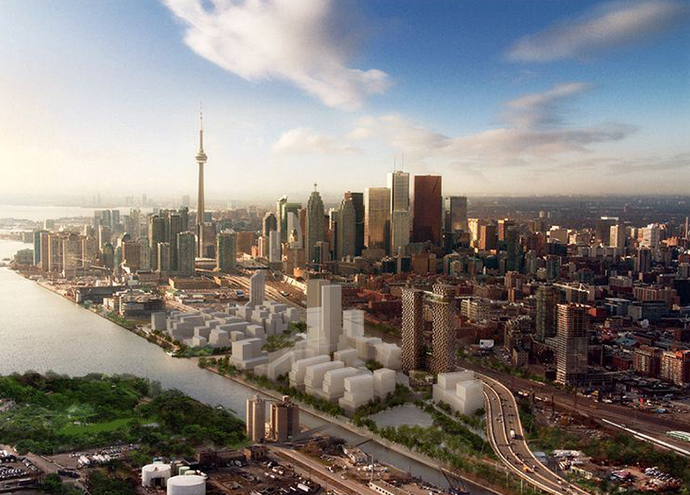
PASTPRESENTFUTURE
The Port Lands Redevelopment is slated to open, introducing 25 hectares of new parks and green spaces, new roads and bridges, a new river, and a new island to the city. It will offer an incredible new outdoor lifestyle, with forests, canyons, and kayaking, just minutes from downtown.
2024
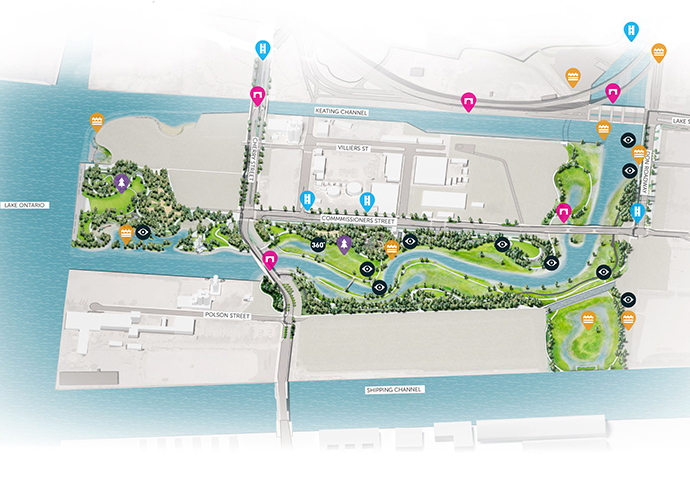
PASTPRESENTFUTURE
The Red Brick Promenade will be unveiled, leading from the Distillery District down to the water, ending at Whisky Beach, where a 14-metre amber-coloured fountain will be on display.
2024
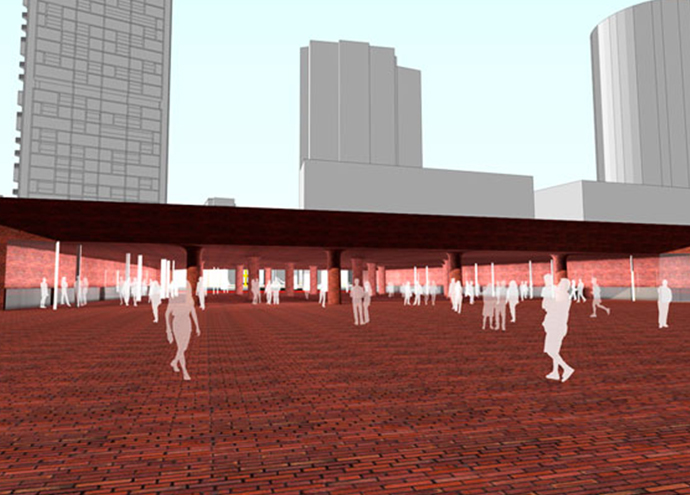
PASTPRESENTFUTURE
The new Ontario Line subway is scheduled to open, stretching 16 kilometres from Ontario Place to the Science Centre with 15 new stops, including one just a 5-minute walk from The Goode. The line will connect TTC Lines 1 and 2 and GO Transit.
2030
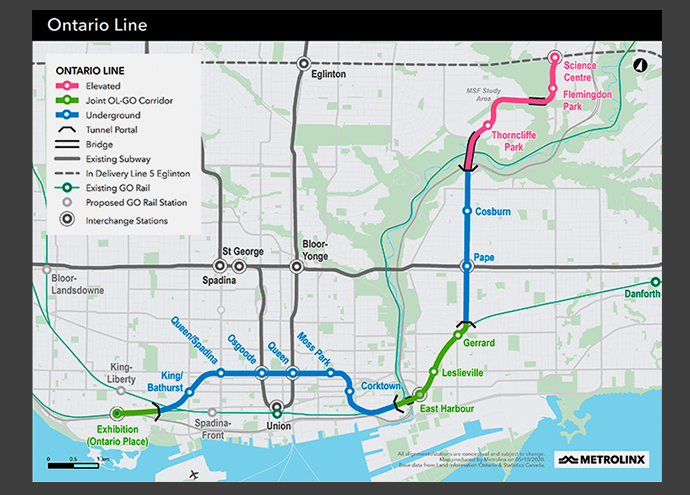
PASTPRESENTFUTURE
The anticipated opening of East Harbour, a $10 billion master planned, 60-acre mixed-use development with 12-million square feet of unique office, retail, and institutional space, home to more than 50,000 workers. Visitors will flock to this world-class hub for art, commerce, culture, entertainment, and retail.
2039
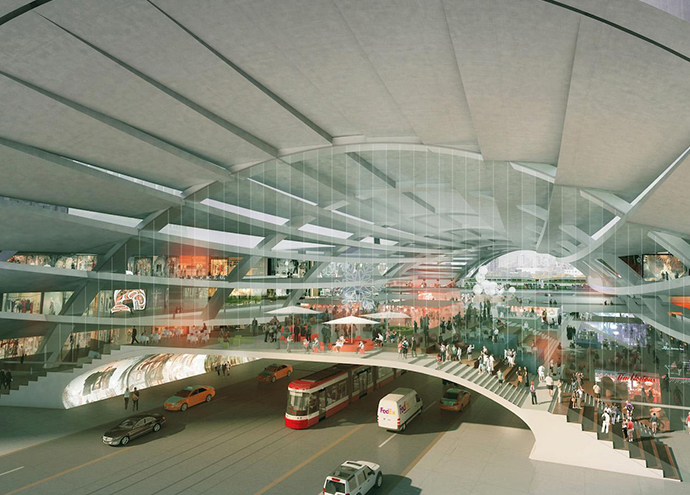
PASTPRESENTFUTURE
Soon after, the East Harbour Transit Hub will open, the GTA’s best served transit station outside of Union Station. The multi-modal transit hub will connect local and regional transit, including the Ontario Line subway, Broadview and Queen’s Quay LRT, the GO Train, and SmartTrack.
2039
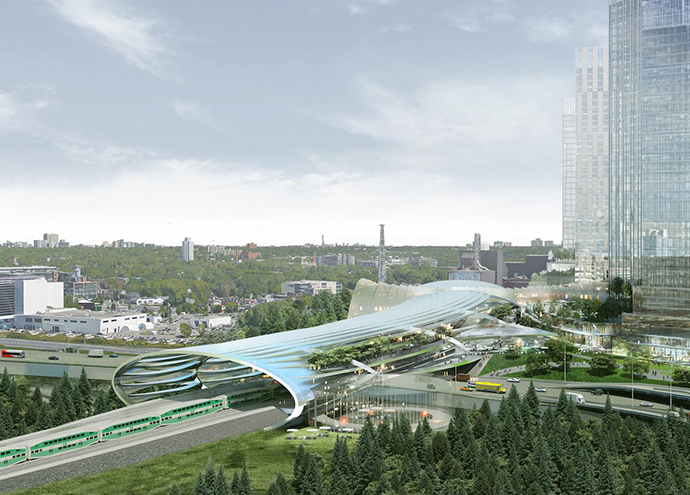
PASTPRESENTFUTURE
GOODE THINGS COMING YOUR WAY
REGISTER FOR UPDATES

